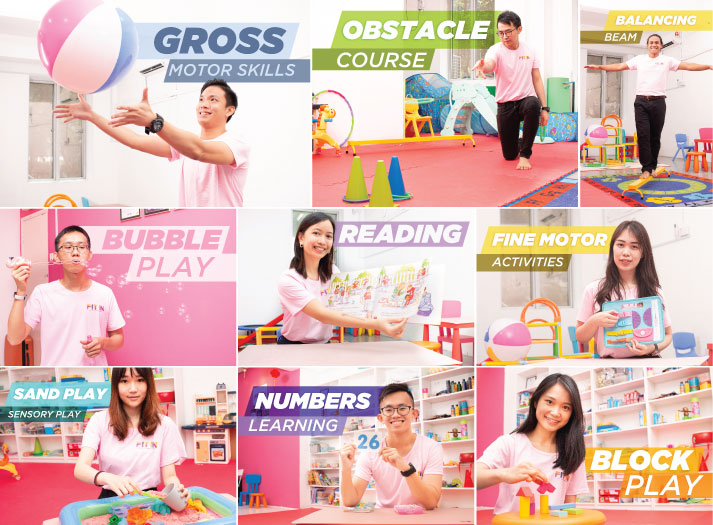All children grow up differently, and some may have different needs when it comes to their care. When it comes to matters such as behavioral issues or learning disabilities, parents should be first in line to ensure that their child receives proper assessment, followed by appropriate treatment that will allow the child to live a normal, healthy and happy life alongside his family and peers.
As with all matters directly related to the health of the child’s mind, the earlier an issue is detected and addressed, the better it will be for the child’s future. Parents should also be aware of who they seek out to help their child. Therapists who are confident and experienced will be able to carry out the best and most suitable methods that will help a child to cope with his or her disabilities and generally fare better as well as experience a more successful outcome – which is, ultimately the main aim of early intervention.
What to look out for

There will always be giveaway signs to look out for, and these include: when a child avoids eye contact; when speech and communication skills is delayed or impaired compared to peers; when a child has a very narrow range of focus or interests; when there are abnormal repetitive actions; when a child does not respond to their name being called; when there is are obvious memory issues and short attention span; etc. If there are any developmental issues in their child, parents should be able to detect them when a child is between 3-5 years of age. It is crucial that appropriate action is taken to address the issues, for they could be linked to any of the conditions mentioned earlier.
FIT IN: Helping children with unique learning needs
Helping children to catch up in faltering developmental milestones requires specific training and expertise. This is where FIT IN Child Development Centre comes in, for the centre has successfully helped children between the ages of 2-17 to achieve the normal, healthy life that they deserve. FIT IN offers the renowned Applied Behaviour Analysis (ABA) Program, which is the gold standard treatment for autism. It’s a treatment based on behaviourist theories which states that desired behaviours can be taught through a system of rewards and consequences. ABA also incorporates Speech & Occupational Therapies, and it acts as a stepping stone before starting on other therapies.
Occupational Therapy is aimed at supporting the development of a child’s fine and gross motor skills, physical activities and body coordination needed to function independently daily. A child will need to undergo this therapy if he or she finds it challenging to hold a pencil, or, focus on a task. Speech therapy on the other hand will help if a child has speech and language disorder. It will help to improve their fluency, articulation and resonance, and in putting words together to express themselves effectively.
What sets FIT IN apart from other centres is its unique two therapists for one child approach, in a Natural Environment Teaching (NET). The program has been successful in helping many children catch up in their respective development milestones.
Here’s an important message to all parents reading this: It will make a world of difference if a possible learning or behavioral issue is detected as early as possible. This can be done through an assessment carried out at the centre.
The FIT IN difference for the outcome parents hope to achieve
The unique ABA Program offered at FIT IN with two therapists for one child approach has been proven to reap positive results in a child’s language and communication skills; attention; focus; memory; social skills as well as academics. The program runs alongside an IEP (Individualized Education Plan), which is personalised to a child’s unique learning needs. This can be conducted at the FIT IN centre or at home.
A detailed assessment will be carried out, after which an appropriate program will be established, tailored to the specific deficits and skills of the child. Furthermore, the needs of both the parent/parents and child are taken into account in the assessment of care goals. Generalization activities will then be incorporated into the program to ensure the quality of expertise in multiple environments.
Children attending FIT IN Child Development Centre attain more self-control and self-monitoring capabilities. Children also acquire enhanced ability to concentrate on tasks, complete assignments, and stay motivated. There really is nothing more joyful for parents than seeing their child now more willing to learn, cooperate and ultimately, participate in a classroom.
Early assessment and detection are crucial first steps for a child to adjust back into mainstream schooling, and a happier, more confident childhood. Parents have the task of being vigilant and mindful of the warning signs. Delaying actions benefit neither child nor parent, so if you have a question or inquiry, call or visit the centre today.
For more information, please visit the website and Facebook.



